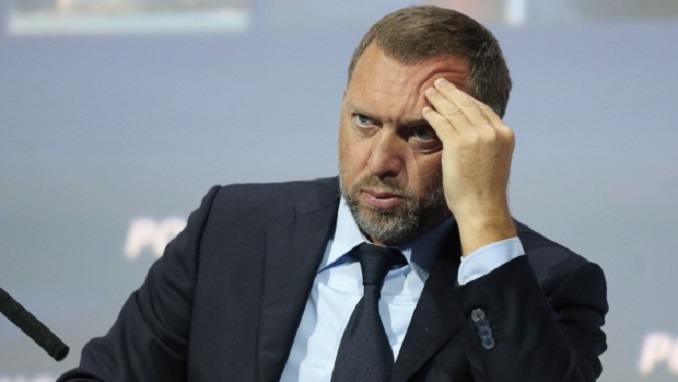Russian businessman Oleg Deripaska may have to break off an agreement between Rusal shareholders, as the move was requested by the U.S. authorities as a condition to lift sanctions on the major aluminum producer, Vedomosti reported citing sources.
Dropping the agreement is the only way out of the current situation, the paper’s sources said, adding that the businessman sees no other chance to save the company. Meanwhile, EN+ Group has not yet offered to cancel a shareholder agreement to minority shareholders, one of the sources said, adding that no reorganization proposals have been put on the table either.
The U.S. Treasury Department imposed sanctions against Rusal in early April, along with other measures against a number of Russian officials, companies, and businessmen. The move caused a worldwide disruption in aluminum trade and briefly sent the price of the metal to a four-year high.
According to the shareholders’ agreement, EN+ is considered to be the controlling shareholder of Rusal as long as its share exceeds 40% (currently it equals 48.1%). Initially, the document was meant to protect the rights of minority shareholders, a person close to one of the company’s co-owners said.
The agreement between En+, Glencore and Sual Partners of Victor Vekselberg and Leonard Blavatnik was signed when Rusal was set up in 2007. Back then, the partners merged their assets in the aluminum industry as En+ contributed Rusal, Sual Partners – Sual, and Glencore – aluminum and metal plants in non-CIS countries.
Analyst Ivan Tertychny considers the termination of the shareholder agreement to be a serious argument for En+ and Rusal in the discussion with the U.S. Treasury. However, it does not guarantee automatic relief from the sanctions, the expert adds.
“When making a decision, the U.S. Treasury will take into account not only the judicial aspects of the shareholder agreement but matter-of-fact aspects as well – how and who makes decisions for company’s management,” he explained.
Moreover, Rusal was slapped with sanctions as an independent company, not as a subsidiary of En+, which means it may be not enough to terminate the shareholder agreement where EN+ is defined as a controlling shareholder, in order to get out of the sanctions list, Tertychny told Vedomosti.












